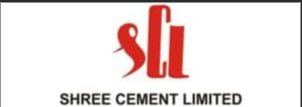Shree Cement Ltd: Latest Stock Analysis & Updates
Stay informed with the latest updates on Shree Cement Ltd, one of India's top cement manufacturers. Get real-time share price updates, detailed stock analysis, historical performance, financial res...
BUSINESS & ECONOMY


Shree Cement Ltd: Latest Stock Analysis & Updates (2025)
In India’s fast-evolving infrastructure and construction sector, Shree Cement Ltd remains a formidable player. Known for its operational efficiency, aggressive expansion strategy, and environmental initiatives, the company has been a consistent performer on the stock market. As of mid-2025, investors and analysts are closely watching Shree Cement's movements due to significant developments across its operations and financials.
This blog provides a comprehensive analysis of Shree Cement Ltd's stock performance, business model, latest updates, and investment outlook.
Company Overview
Shree Cement Ltd is one of India's top cement manufacturers, headquartered in Kolkata. It operates primarily in the northern and eastern parts of India but has been expanding its footprint across the country.
Founded: 1979
Founder: Benu Gopal Bangur
Chairman: Hari Mohan Bangur
Market Cap (2025): Approx. ₹95,000 crore
Stock Symbol: NSE: SHREECEM
The company is known for its low production costs and energy-efficient operations, which give it a competitive advantage in the cement industry.
Recent Stock Performance (2024–2025)
Shree Cement’s stock has shown moderate but stable growth in the past year. As of July 2025:
Current Price: ₹26,200 (approx.)
52-Week High: ₹28,750
52-Week Low: ₹22,900
YTD Return: +12%
P/E Ratio: 41.5
Dividend Yield: 0.30%
While it may not have been the most explosive performer, its stock is often favored by long-term investors for stable returns and strong fundamentals.
Financial Snapshot (FY24–25)
✅ Revenue Growth
Shree Cement reported consolidated revenue of ₹19,350 crore for FY24–25, up 9% from the previous year, driven by increased cement demand and higher realization per ton.
✅ Profit After Tax (PAT)
The PAT stood at ₹2,650 crore, registering a 10% YoY growth. This was aided by better operating margins and cost optimization measures.
✅ EBITDA Margins
EBITDA margins improved to 23.5%, thanks to:
Reduced fuel costs
Improved logistics
Better operating leverage
Expansion Plans and Capacity Growth
Shree Cement has been aggressively expanding its capacity to maintain its position in the top 3 cement manufacturers in India.
Key Developments:
New plants commissioned in Karnataka and Uttar Pradesh
Total installed capacity now exceeds 55 MTPA (Million Tonnes Per Annum)
Aiming to reach 75 MTPA by 2027
The company is also investing in green cement production, aligning with ESG goals.
Key Strengths
1. Operational Efficiency
Shree Cement is regarded as one of the lowest-cost producers in the Indian cement sector. Their use of waste heat recovery systems and renewable energy has significantly reduced their power costs.
2. Debt-Light Balance Sheet
The company maintains a low-debt profile, with a debt-to-equity ratio under 0.2, allowing it to raise capital easily for future growth.
3. Brand Equity & Distribution
Its strong brand presence in northern and eastern India, backed by a robust dealer network, ensures consistent sales volume.
4. ESG Compliance
The company’s proactive approach toward environmental sustainability has drawn ESG-focused investors. Shree Cement aims to be net-zero carbon by 2040.
Challenges & Risks
1. Volatility in Input Costs
Cement production is heavily reliant on energy (coal, pet coke, power). Any spike in fuel prices directly impacts margins.
2. Intense Competition
UltraTech Cement, ACC, Ambuja Cements, and Dalmia Bharat continue to battle for market share, especially in tier-2 and tier-3 cities.
3. Policy & Regulatory Uncertainty
Environmental norms, mining policies, and GST-related changes can affect profitability.
4. Demand Cyclicality
Cement demand is cyclical and sensitive to government spending, monsoon performance, and real estate cycles.
